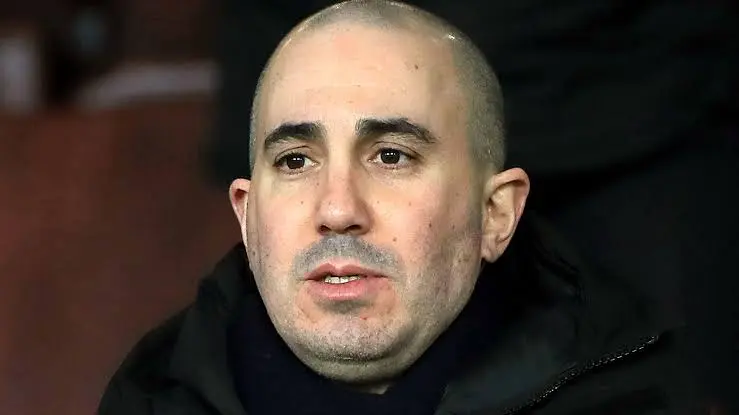The Premier League took a decisive step forward on Friday morning, securing a critical victory in the long-running battle over Associated Party Transaction (APT) rules.
With a 16-4 vote in favor of three key amendments, the league solidified its stance on financial regulations, signaling the end of a period of heated contention—but perhaps only the beginning of Manchester City’s legal pushback.
The vote took place at London’s Nobu hotel, where, in just 15 minutes, the amendments were approved. Manchester United’s Omar Berrada, once an integral figure at Manchester City and pivotal in their acquisition of Erling Haaland, delivered the final blow to City’s resistance. His brief yet sharp remarks emphasized the need for unity within the league, urging clubs to move past the financial disputes that have plagued its operations since February.
The decision came after months of ferocious lobbying among clubs. Chelsea’s chief legal officer James Bonnington and Premier League executives Richard Masters and Alison Brittain framed the amendments as vital to maintaining the league’s competitive balance. Masters, exuding confidence before the vote, emphasized that clubs were already well-versed in the issues, negating the need for lengthy presentations.
APT rules limit how much associated companies can inject into clubs via sponsorships. The amendments integrated shareholder loans into fair market value (FMV) tests, provided earlier access to a database of benchmarked commercial deals, and softened the language in regulations from “would” to “could.” These changes aim to tighten financial controls and prevent potential loopholes exploited by wealthier clubs, ensuring fair competition across the board.
Advertisement
Latest Press Conference
We’re on Social Media



Despite the overwhelming support, Manchester City stood firm, joined in dissent by Aston Villa, Newcastle United, and Nottingham Forest. Each club’s opposition stemmed from different motives, with City arguing the amendments were premature given the lack of full tribunal guidance on APT rules. Villa and Forest, meanwhile, expressed concerns over their broader implications, while Newcastle’s stance reflected ongoing resistance to restrictions targeting multi-club ownership models.
City’s frustrations deepened as several clubs that had privately expressed support ultimately voted in favor of the amendments. Everton, previously aligned with City’s position, switched sides amid their shareholder transitions. This shift underscored growing consensus among Premier League clubs that prolonged infighting jeopardizes the league’s reputation and financial health.
Supporters of the amendments believe the changes are essential to safeguarding the league’s competitive integrity. The tribunal’s findings earlier this year made clear that failure to act risked ceding control to wealthier clubs, potentially destabilizing the domestic football pyramid. Many see this vote as a defining moment for the Premier League’s future, solidifying regulations that level the playing field and prevent unchecked spending.
Manchester City, however, view the amendments as legally and procedurally flawed. Their General Counsel, Simon Cliff, has raised concerns over exemptions granted for shareholder loans retroactively applied from December 2021. City argue this aspect violates previous arbitration findings and could invite further legal scrutiny. Villa owner Nassef Sawiris echoed this sentiment, emphasizing the exorbitant legal costs incurred so far and warning against escalating disputes.
Joachim Piotrowski, a competition lawyer, described the 16-4 vote as a “pivotal moment” in the Premier League’s regulatory framework. Yet he cautioned that City might still challenge the amendments through judicial review or an appeal of the tribunal’s decision. The softened “could” language in FMV tests, while intended to provide flexibility, could open the door to future disputes over enforcement.
The Premier League’s leadership, however, appears determined to draw a line under the APT saga. Officials argue that any delay in implementing the amendments would risk undermining the league’s authority and emboldening dissenters. Friday’s outcome, sealed by 9:20 AM and announced minutes later, reflects a decisive move to reassert control over financial regulations.
For Manchester City, the battle is far from over. While the Premier League and its allies have secured a key victory, the club’s legal team seems prepared to intensify their challenge. With 115 separate charges still looming over City, Friday’s result adds another layer of complexity to their contentious relationship with the league.
The amendments, if upheld, mark a shift toward tighter financial oversight within the Premier League. But for City and its dissenting partners, the fight represents broader stakes—balancing financial power against regulatory authority. Whether this resolution signals a turning point or merely a prelude to further legal battles remains to be seen.
For now, the Premier League has won a crucial round. But as City’s rivals celebrate a newfound unity, their message is clear: the days of unchecked dominance by any one club are over. For City, the challenge ahead is not just defending their own practices but navigating a league that appears more united than ever in enforcing its rules.
